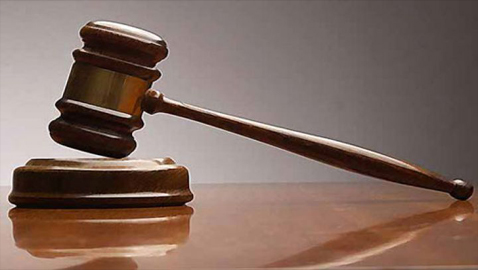Are Military courts the answer?
Since the horrific Peshawar Army Public School incident in which 135 people, mostly children, were martyred and many others were injured and scarred mentally forever, numerous proposals have sprung up. One of the proposals which met with strong support from the political and military leadership was the establishment of military court or alternatively special courts for speedy trial of terror suspects headed by the officers of the armed forces of Pakistan, which in substance are military courts nevertheless. The resolve of the national leadership to terminate the menace of terrorism should be appreciated as the national action plan, while substantially reiterated rhetoric, is cogent in its objectives. There is however, the establishment of the military courts, a particular feature of the national action plan which irks me a great deal. While the proponents of the establishment of such courts argue that it will help curb terrorism, I think it is an ill-suited solution to the problem.
I would like to state four reasons why the military courts are a bad idea:
1) They are unconstitutional:
Even though I am a qualified lawyer, I would not go deep into providing citations for sections of statues, the constitution of Pakistan or even case law. I would rather like to prove the military courts unconstitutionality through broad constitutional doctrines. The establishment of military courts will deeply damage the enforcement of the separation of powers in a country where it is already hardly enforced at all. Our great nation has already witnessed repeated abrogation of the constitution, mostly by the armed forces of the country; it is ironic then to involve the officers of the armed forces in judicial roles. Such courts must also be in violation of the concept of rule of law, since the doctrine of the rule of law contains many other components such as the rules of natural justice and the trichotomy of powers. The armed forces are a part of the executive section of the government; they are barred from holding judicial offices. If today this precedent is set, who may know that the Chief Secretary of Sindh might also act as a judge in a special court tomorrow?
2) We already have terrorist courts:
The anti-terrorist courts were created in 1997 through the ATC act. Section 19(7) of the act calls for the anti-terrorism court to take cognizance of the case, proceed with the trial from day to day and decide the case with in seven working days. This essentially means we do not need more courts for speedy trials; as such courts are already in existence. The problem is not with legal provisions, but with the implementation of such provisions; rather than creating more courts, we should concentrate on improving the courts already working. The armed forces can assist the prosecution and police during an ongoing case and provide them with relevant evidence that can help secure their conviction rather than creating courts of their own. At the very least, judges of the ATC are legally trained to assume judicial responsibilities in comparison to officers of the armed forces.
3) They are not suitable for adjudication of cases:
There are some insurmountable legal rights that are guaranteed to the citizens of the state. The lawyer and the judge should be well-versed in such procedural protections for them to be able to hold the reigns of the criminal justice system. The officers of the armed forces are not well-equipped with their qualification or experience to take up such litigation; it is well left to the traditional lawyer. Usually in military justice, mostly applicable to the soldiers and officers of the armed forces rather than the civilians, the burden of proof is reversed on the defendant, which is a hard pill that has to be swallowed because discipline in the army is one of the top priorities. Such administratively dispensed justice however is not suitable for the trial of a suspected terrorist, a citizen of the state nevertheless. A defendant should be given the right to take full advantage of the procedural and substantive rights provided to him. In the case of military courts, sometimes even a defense counsel of choice is not provided. The court itself provides for the defendant’s counsel arbitrarily in an administrative fashion and then issues a ruling.
4) They can be used for political victimization:
This was the fear of the PPP and MQM in the meeting of the parliamentary parties which decided on the action plan. In fact once anti-terrorism courts were created by Nawaz Sharif’s second government, the same courts convicted the Sharif brothers and sentenced them to life imprisonment. Military courts have been seen to be used to for political purposes in many jurisdictions and its better if Pakistan can stay away from such peril, especially with its history of dispensing injustice through abolishing procedural rights because of political vendettas.

